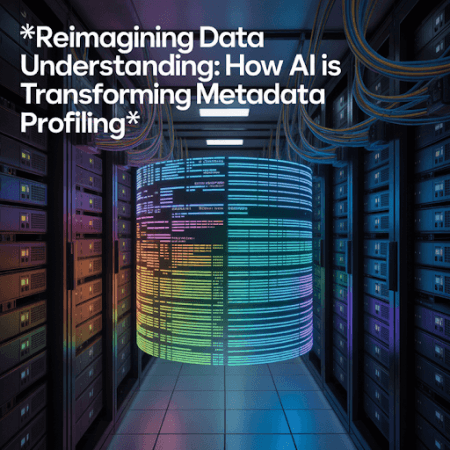
In a digital world overflowing with data, enterprises often face the challenge of transforming chaotic databases into structured, meaningful insights. At the forefront of this transformation is Narendra Reddy Mudiyala, a researcher focused on enhancing data profiling through large language models. His work introduces a GPT-4-based framework that elevates metadata generation from a technical chore to a seamless, intelligent process. By doing so, it significantly narrows the gap between raw data and business understanding.
From Schema Scrutiny to Semantic Awareness
Traditional metadata profiling systems have long depended on schema inspection, statistical pattern analysis, and heuristic rules. While these methods capture technical data like null values or cardinality, they fail to convey what the data actually means in a business context. His innovation lies in embedding large language models directly into the profiling pipeline, enabling automatic generation of semantically rich column descriptions. This shift from technical metadata to context-aware narratives empowers analysts to understand, trust, and use data more effectively.
Intelligent Architecture for Scalable Deployment
The proposed framework rests on a modular architecture that integrates GPT-4 with enterprise data systems through a three-part pipeline: data extraction, LLM processing, and metadata injection. It incorporates intelligent sampling techniques to balance comprehensiveness with performance limitations and introduces caching, redaction protocols, and validation layers to ensure output consistency and security. This structure not only enables scalable profiling across billions of records but also secures sensitive information during AI processing.
Prompt Engineering as a Catalyst
A standout feature of the framework is its adaptive prompt engineering. Five strategies ranging from zero-shot to dynamic prompting ensure that GPT-4 tailors its responses to different data types and domains. For example, context-enriched prompts help the model interpret complex relationships in analytical datasets, while template-based prompts ensure regulatory compliance in structured industries. These layered prompt strategies fine-tune GPT-4's capabilities to deliver high-accuracy, business-relevant metadata.
Evaluating What Matters: Accuracy, Clarity, Relevance
To ensure the quality of AI-generated metadata, the framework introduces a multi-tiered evaluation strategy. It blends automated metrics like semantic coherence and technical accuracy with human review to measure domain relevance. The results are compelling: GPT-4 consistently outperformed traditional tools, especially in identifying patterns and producing coherent descriptions. This capability becomes particularly useful when dealing with large, complex, or poorly documented datasets where manual intervention is impractical.
Addressing Real-World Data Complexities
Mudiyala's system shows strength across multiple data environments, from transactional records and log files to warehouse schemas. Structured datasets yielded the most accurate outputs, while semi-structured and multilingual data required more advanced prompt conditioning. Common failure modes, such as abbreviation confusion or domain misinterpretation, were addressed through glossary injection and expert validation protocols. These strategies underscore the framework's adaptability to real-world challenges.
Overcoming Deployment Hurdles
Deploying such a sophisticated system at scale involves tackling hallucinations, privacy concerns, and compute costs. The solution incorporates redaction tools, cost-efficient batch processing, and hybrid validation workflows to maintain quality without inflating operational budgets. Additionally, compatibility with modern metadata catalogs enables real-time integration, triggering profiling workflows as data changes, making metadata generation not only intelligent but also automated and responsive.
Toward a Self-Documenting Data Future
The integration of GPT-4 into metadata profiling represents a paradigm shift. No longer must organizations rely on fragile, manual documentation. Instead, his work shows how AI can dynamically interpret, describe, and document data assets as they evolve. This innovation not only improves data discoverability and governance but also democratizes access by making data comprehensible to non-technical users.
In conclusion, by combining architectural finesse, prompt engineering, and rigorous validation, this framework sets a new benchmark for AI-enabled metadata management. Narendra Reddy Mudiyala's contribution signals a future where enterprise data becomes self-aware and self-descriptive, enabling faster insights, stronger governance, and broader access. It's a decisive step toward data infrastructure that speaks the language of business.

















